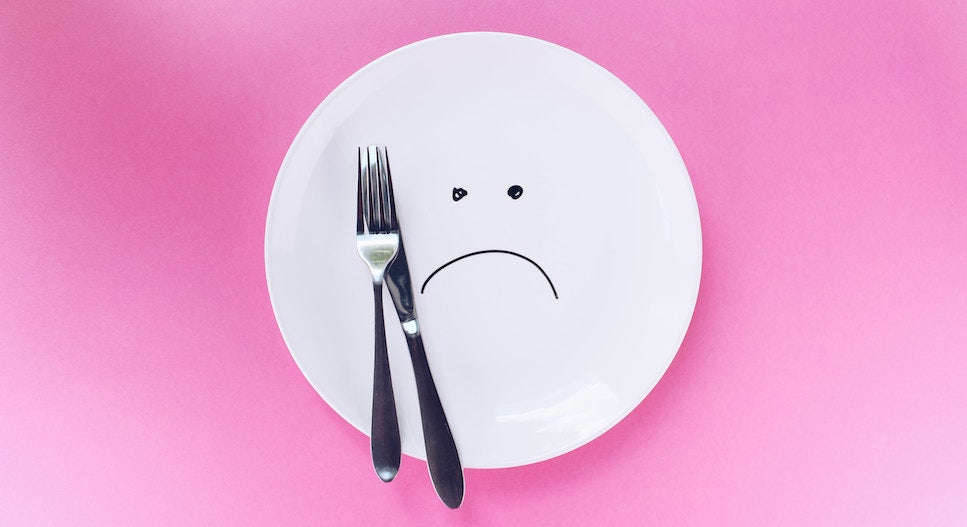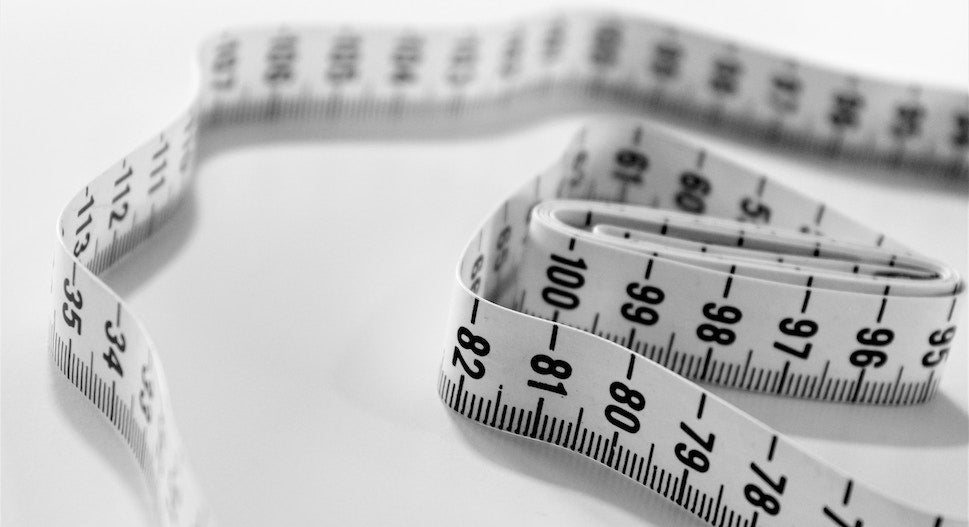
The first few months of any year can be a hard task. Not only are the daylight hours short and the weather bleak, but it’s also that time of year again when we’re supposed to abandon who we were in the year gone by and face the impossible task of reinventing ourselves.
While Christmas encouraged self-care, through taking time for ourselves and eating what we please, January then came in and whacked us over the head with a barrage of self-loathing under the guise of New Year’s resolutions.
Thought you were allowed to sit around doing nothing and eating 5000 Lindt chocolate balls a day? Hell no, that was just the cheat month before a winter spent forcing yourself on the treadmill and moving kale around on your plate while calculating the calories in olive oil dressing.
Intentions don’t need to be through the lens of diet culture
It’s not surprising that brands use this ‘new me’ momentum to sell us superfoods and gym subscriptions. But why does it have to be through the lens of diet culture? Brands shouldn’t capitalise on our fragility after Christmas - as if we should feel guilty for daring to ‘overindulge’ or spending days in our pyjamas. Why can’t we go into January with a spring in our step knowing that we enjoyed our well-deserved rest?
As a previous disordered eater, the annual promise of ‘new year, new you’ (which was code for a thinner you) was kryptonite. Year after year I’d fool myself into thinking that if I could just find the perfect diet and drop a few dress sizes, I would become a happier version of myself. I didn’t realise that the very pursuit of thinness was at the locus of my unhappiness.

Dieting will not make you happier
Adele recently hit the papers this week for her drastic weight loss following the divorce from her husband. Whilst I don’t know what is going on for her, I suspect her outward appearance may be indicative of a challenging psychological time. Yet here we are celebrating her, speculating about which diet she’s on, so that we too can be as successful and happy as her. I myself even spent a few minutes researching the diet she was on and nearly buying a ‘weight-loss triggering supplement’ before slamming my laptop screen down and reminding myself that dieting will not make me happier. I’ve learnt by now that a thinner, smiling person splashing around on a beach on Instagram does not always make for a contented, smiling person on the inside.
Restrictive diets appear to offer a magical solution to all our problems, and in the short-term we’re fooled into thinking they work. People compliment our bodies, our clothes hang looser, and we feel a smug sense of pride at saying no to the office biscuit round. Yet nothing internal actually changes. We are still the same people, with the same obsessive thoughts and fragile egos. When the restriction inevitably doesn’t work, we are left with the same damaged person underneath, just with a deeper sense of failure and maybe a binge eating disorder.
Set your intentions around self-care
What if we centred our personal development around meaningful change? The difficult internal work that none of us want to speak about? I’m not talking about the kind of self-care where you light a candle or have a bath, but deep, uncomfortable psychological development.
Let’s stop and think about the root of what we actually want to alter about ourselves when we feel pulled to lose weight or look shredded. Do we have a deep sense of unworthiness? Do we have an overactive inner critic or an obsession with perfection? At the root of a desire to change our bodies is a lack of acceptance for ourselves as we are. Knowing that the problem is not how we look but how we feel about ourselves, what would be a more beneficial use of our time and money?

Don’t make it about weight loss
Focus on changes that actually make you feel good. There’s no problem with eating more vegetables or moving more, as long as the intentions are coming from a healthy place. It can be hard to know if we’re engaging in wellness for the right reasons, but the clue is tapping into how it makes us feel. If you know running gives you an endorphin high and you look forward to it, setting goals to go for a run after work a few times a week is going to improve your happiness. If running makes you feel like you’re going to throw up but you feel like you should go because Karen from the office runs every lunchtime and then talks relentlessly about how fattening carbs are, that’s not a healthy reason to set this as a goal and will likely make you feel bad about yourself and therefore be unsustainable.
One helpful way to remove the focus on our external is to look at making internal changes instead - pay for therapy instead of buying laxative teas, subscribe to a meditation app instead of a calorie counting one. There are free ways to nurture your personal development too. Write down your feelings, have those difficult conversations with people you’ve been meaning to, call a friend you feel you can talk to. There’s an infinite number of ways to make positive personal change that have nothing to do with weight loss. Reflect. Rather than act; feel. Put your energy into working out what you need, how to ask for it, how to respect your boundaries.
Though these goals sound less attractive than a shiny new body, I promise they will improve your self-worth, body image and general well being much more. It’s less immediately compelling because it’s changing our internal world and going against our defence mechanisms, and that is always going to be uncomfortable. But unlike any diet, the benefits last forever and run deep.
Remember that overhauling your mind TAKES TIME. The most important part of change is repetition. So don’t beat yourself up when things happen slowly, they need to happen slowly for us to feel safe. Celebrate the small things and reflect on the work you're doing.
What I’ve found is that the more I focus on sorting out my head, the easier it becomes to look after my body. It’s often low-self-esteem or high stress that makes exercising hard. When I’m more compassionate with myself, it’s easier to take an hour out of my day to go to the gym or spend time cooking fresh and delicious meals. When I’m in a mentally more challenging place, that’s when I’m less motivated to cook or lie on the couch for a whole weekend (not that this should be discouraged, duvet days are an essential part of my self-care, but when I spending more time in my pajamas than not I know I’m not being kind to myself). Heal your insides and the healthy behaviours will generally follow suit.

Centre your goals around positive change, not what you should stop doing
Another way to rebel against the negative culture of diet resolutions is to centre our goals on positive change. Instead of thinking what we should stop doing or what we aren’t doing right, why not reflect on what has been going well?
Been loving going to bed with a book instead of scrolling through Twitter? Do more of that. Been looking forward to a 3pm biscuit with a hot cup of tea? Savour the moment and make it a ritual. Found a new yoga instructor you love? Buy a bundle of their classes.
Notice how the language we use frames these changes as positive acts of self-care, rather than punishments for our sins. When talking in absolutes we set ourselves up to fail, which catapults us into a cycle of guilt.
Or maybe, just maybe, we’re okay exactly as we are. What if instead of reinventing ourselves every year, we just simply existed as we are? Life is hard enough without constantly working towards perfection. New year, same you, just with a little more self-compassion.





























































